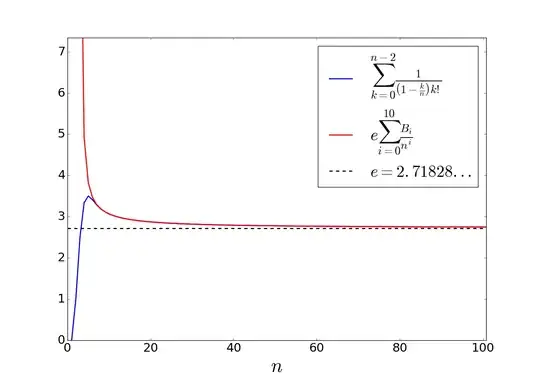I'm trying to find an asymptotic expansion for the following sum:
$$\sum_{k=2}^{n}\frac{n!}{k\left(n-k\right)!}=\sum_{k=2}^{n}\left(\begin{array}{c} n\\ k \end{array}\right)\left(k-1\right)!$$
for large $n$. According to Maple, this sum is equivalent to:
$$\frac{n^{2}-n}{2}\,_{3}F_{1}\left(1,2,2-n;3;-1\right)$$
where $_{3}F_{1}$ is a special case of the generalized hypergeometric function. But on the internet I cannot find any asymptotic expansion of $_{3}F_{1}$, because most work focused on other cases, e.g. $_{2}F_{1}$. I think it could be easier to work directly on the original sum. But by searching in previous posts I cannot find the specific sum I'm interested in. Moreover, asymptotic approximations of $\left(\begin{array}{c} n\\ k \end{array}\right)$ do not look very useful since they do not work for $k\approx n$. Help would be very appreciated!
